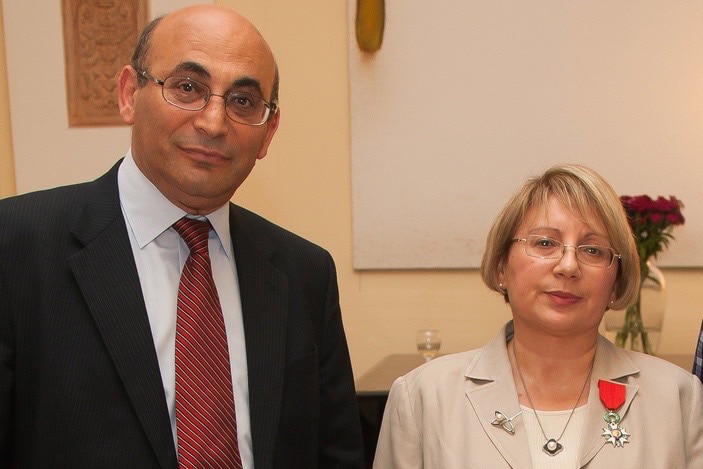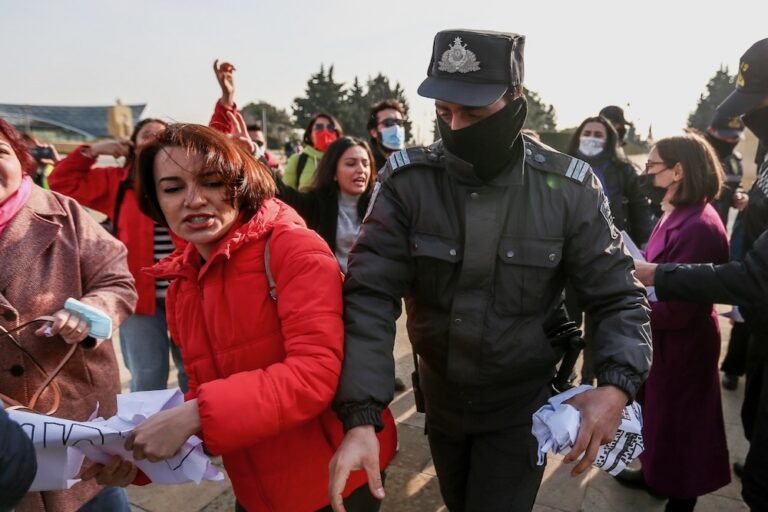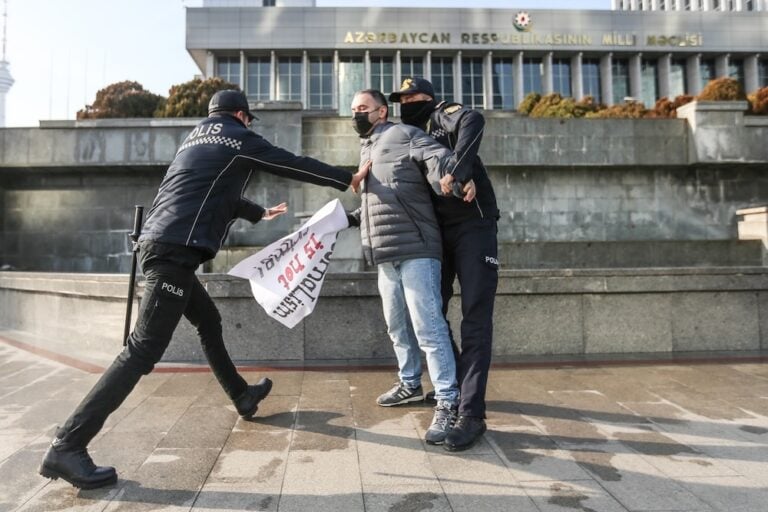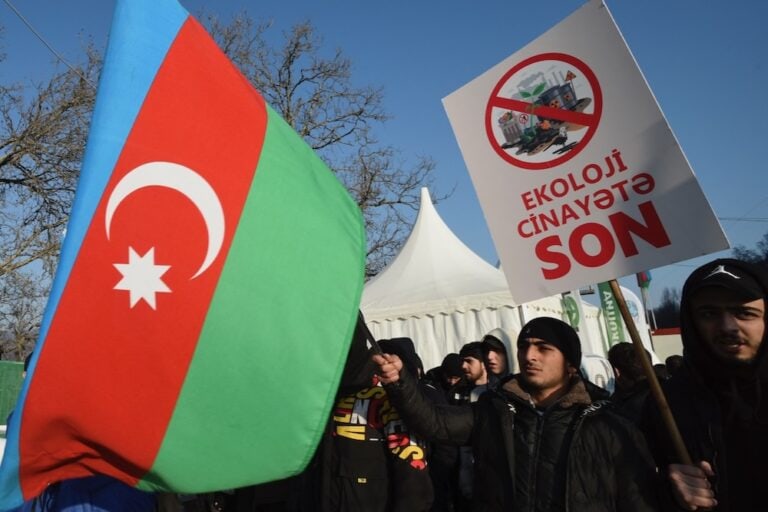Human rights activist Leyla Yunus and her historian husband, Arif, are at threat of being extradited to Azerbaijan to face trial on trumped up charges of treason, tax evasion and fraud. Both had spent time in prison, suffered acute health problems and were eventually granted political asylum in the Netherlands, yet an appeals court in Baku is demanding that they return to be questioned by the court in person.
In a March 2015 letter from prison to her husband, Arif Yunus, who was also imprisoned, Leyla Yunus wrote: “I have not written to you for a long time. They have surrounded me with a thick barrier. They fear my words more than the bullets.”
On 13 August 2015, Leyla Yunus, a human rights activist, was sentenced to 8 ½ years in prison, and her historian husband, Arif, to 7 years, in what was been described as a show trial. Convicted on trumped up charges of treason, tax evasion and fraud, it served as a warning to others who dare to challenge the government. Both are in their early 60s and were in very poor health leading to fears that they would not survive in prison.
Leyla Yunus is director of the Institute for Peace and Democracy set up in 1995 to promote and defend women’s rights, end politically motivated prosecutions and forcible evictions, and resolve the conflict in the disputed region of Nagorno-Karabakh, seized from Azerbaijan by Armenian backed separatists in the 1990s. Arif Yunus is a historian specialising in the region. Prior to her detention Leyla Yunus had also been working on a project documenting political prisoners in Azerbaijan. Leyla was granted the Chevalier of the Légion d’honneur at the French embassy in Baku in 2013 in recognition of her work.
On 30 July 2014, the couple were arrested. Having recently suffered two strokes and in frail health, Arif was freed to await trial, while Leyla was sentenced to a three month detention order. Ignoring warnings not to give interviews or else be returned to prison, Arif immediately went to the media to condemn their arrests. He told Human Rights Watch that they were accused of being spies for Armenia, a charge that he described as ‘humiliating and absurd’. They were also accused of espionage, running an unregistered NGO and failing to pay taxes. On 5 August, Arif was rearrested on his way to deliver a food parcel to Leyla who suffers severe diabetes. Both remained detained until their convictions a year later.
The Institute for Reporters Freedom and Safety reported in July 2014 on how state media smear campaigns police raids, seizures of equipment, closure of bank accounts and intimidation of NGO workers are all methods used by the authorities to stamp down on civil society. Yunus’ Institute for Peace and Democracy has long suffered retribution for its activities, notably in 2011 when its offices – alongside those of two other NGOs – were demolished without warning to make way for a government land clearance project. The Institute had been campaigning against forced seizure of land for development.
The couple’s problems had been brewing for several months. In April 2014, they were apprehended at Baku airport as they attempted to leave the country. Their passports were taken and they were interrogated for 24 hours before being subpoenaed to appear as witnesses in the case of a journalist who had been deported from Turkey on accusation of treason. In the intervening months, the couple were repeatedly called for interrogation which they refused to do, demanding that first their passports must be returned. Just a day before their arrest, Leyla Yunus had published an open letter to President Aliyev titled ‘Who Are You Afraid of, Mr President?’ protesting the arrests of youth activists.
The trial against the couple opened on 30 July 2015, exactly a year after their arrest, a trial described as a ‘circus’ where relatives and friends were told they could not observe because there was ‘insufficient’ room. Amnesty International describes how Arif Yunus fainted during the court hearings. He had suffered two strokes since the harassment and subsequent arrest in 2014.
International appeals for Leyla Yunus’ release were apparently heard, and, on 13 August 2015 she was released on medical grounds. On 9 December that year, her sentence was commuted to a five-year’s parole. Arif Yunus had been transferred to house arrest in November 2015 also because of his ill health, and his sentence was also later reduced to a five-year suspended term. In April 2016 the couple were allowed to leave Azerbaijan to join their daughter in the Netherlands and now have political asylum.
However, the couple’s situation remains tenuous. When they left Azerbaijan their case was under appeal. In December 2016, the Azerbaijan Supreme Court returned it to the Baku Appeal Court which, in May 2017, refused the Yunus’ lawyer’s request that they be allowed to give testimony via the internet, and instead demanded that they return to Azerbaijan to face trial in person. There are concerns that the Azerbaijani authorities may have put in a request to Interpol for the couple’s extradition. In June 2017, a petition was sent to the agency, signed by 25 international and Azerbaijani NGOs who asked that if a demand has been made, it not be met. The letter points out that to do so would be to break Interpol’s constitutional guarantees that it will not take action against people who are wanted by governments purely for political reasons and where their human rights are at threat.



